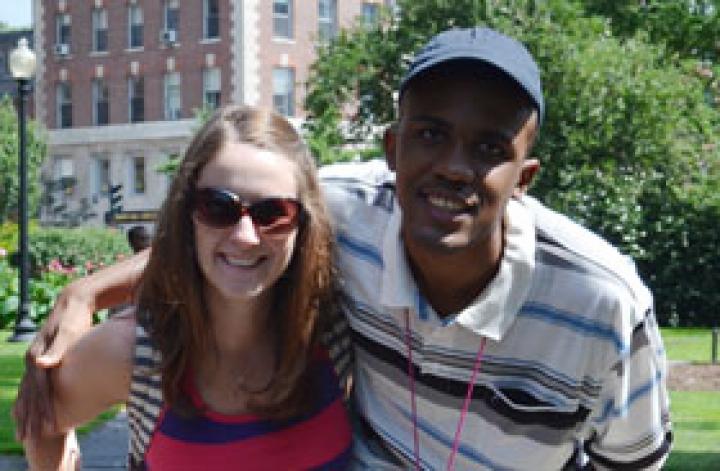Vacationing is not for the faint of heart. Under any circumstances. With YAI it's long hours, hard work, and requires creativity, empathy, organization and a whole long list of other things but it's also the best experiences of my life. But when YAI travels, I feel as if it's almost magical. This is ridiculous sounding, I know. But something unexplainable happens to staff and travelers alike. Sing a silly song in front of others knowing I have a terrible voice? Sure why not! Try something totally out of my comfort zone? Absolutely! I like to think that the program is YAI's philosophy and ethics in motion. It aims to look past diagnosis and through recreation create an environment which you learn about the world, your community and most importantly about yourself. Usually I think of this as two dimensional; reciprocal learning & teaching for travelers and staff members. And for me these lessons have been quite profound, the type of lessons that you carry with you for the rest of your life, that influence your approach to new challenges and have always redefined my perception of reality. These past few trips have proved to be no different. However, there is a third party involved in this learning process; the general community.

Before I plan a trip for Leisure Trax there is of course research of hotels, attractions, where to get the best meal, the best deal, blogs to read about the do's and don'ts. And then there is the research about cultural norms. Not only about general cultural norms of religion, clothing, gender roles but there is research to be done on the culture's construct of disability. Is the community at large in a place where they have moved beyond disability? And no matter how much research you do, like a vacation for anyone, nothing is perfect.
Interacting, being and working with people with disabilities has been such a large part of my life and for many of us in the field, that we forget that this isn't everyone's norm. Because of this I am not part of the mainstream American culture in many ways. I could tell you that people with disabilities are fun, articulate, intelligent, and fearless people but instead they're showing you. And then I don't have to explain 'no really it's incredible' you know it is, you feel it and you see it.
On a recent cruise, a doctor raised his head with a furrowed brow "How did that gentlemen sign his own name?" I thought he was kidding at first, but then I realized that he was serious and his inquiry was sincere and well intentioned. So the traveler then explained his background and education. He also showed the nurse how to download screen savers onto her desktop and matching cursor to make 'themes.' The Dr. was of another culture and despite being brilliant in his own right needed this moment, this interaction, to reframe what he knows. It's experiential learning and I could have told him about the field and people's capabilities but instead we showed him.
And then there are members of the community who tell me what we're doing is 'so cool,' 'heartwarming and touching' and they have a family member or know someone who has a disability. They ask about the program and the travelers tell them about themselves, what we do and where they volunteer/work/live at home. And in that moment you can see and feel that that person is beginning to rethink everything they thought about disability.
"You've been to Morocco?"
"Heck yeah we have!"
"You went whale watching?:
"Absolutely."
"This is your first vacation ever and first time away from home?"
"You bet it is!"
And the dreams and expectations or understanding of limits is hopefully redefined for their sister/brother/nephew/niece/child/friend.
I know that recreation is often seen as 'fluff' but I believe this is the foundation to everything. It's shared human experiences and joy amplified. Often time, my best and my client's best learning takes place when traveling
